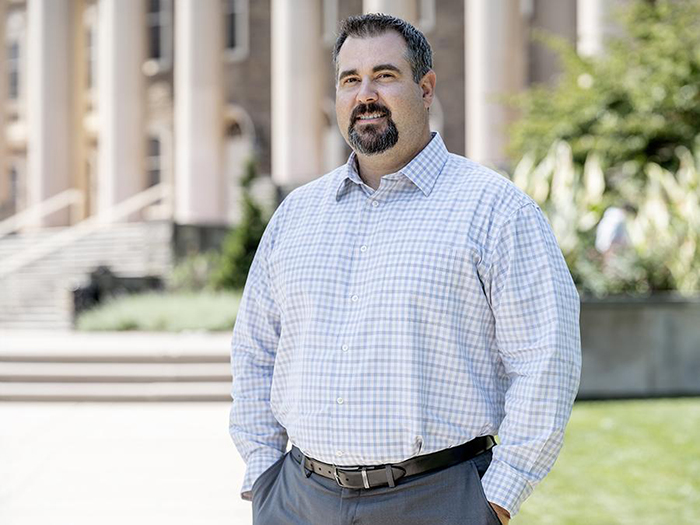Constitutional Challenge
Missteps Muddy Impact of Exclusive Remedy Ruling

“The case is absurd, unfortunate and disappointing,” said David Hart, executive vice president of the Florida Chamber of Commerce, about an Aug. 13 Florida ruling finding the state’s Workers’ Compensation Act unconstitutional as long as it contains an exclusive remedy provision. Due to a “series of improper steps” that the plaintiffs took to obtain a summary judgment, “the resulting final judgment at the moment has created substantial confusion and uncertainty.”
Miami-Dade Judge Jorge Cueto concluded that, since reforms were implemented in 2003, the Act no longer provides benefits sufficient to serve as “a reasonable alternative to the tort remedy supplanted.” Among other changes, the reforms eliminated full medical benefits or any compensation for permanent partial disability, and permanent total disability benefits were changed to end at age 75 in most cases.
Exclusive remedy, therefore, robs injured workers of any recourse to seek compensation for necessary medical expenses while saving costs for employers and workers’ comp providers, Cueto said.
By itself, the ruling accomplishes very little; the Attorney General’s office released an argument defending the Act as is and attacking the case’s procedural gaps. The office will likely appeal the decision. But the implications for both employers and workers’ comp providers could be far-reaching if higher courts agree with Judge Cueto’s determination.
Hart also believes that even if proper procedures had been followed, Judge Cuerto’s ruling holds no water.
“I generally do agree with the reforms made in 2003,” he said. “The workers’ comp system in Florida has a long history of being a system that helps both employers and employees with enabling injured workers to get proper healthcare treatment and get back to work quickly. We believe it is performing in that way.”
Not everyone agrees.
“The case is absurd, unfortunate and disappointing.” — David Hart, executive vice president, Florida Chamber of Commerce
“There is supposed to be an equal balance of rights between employer and employee,” said Deborah Kohl, a personal injury lawyer and past WILAG president. “In some states, benefits have been reduced to levels so low that the court at this point feels that the quid pro quo has been broken. That’s what has led to this decision and the backlash that will come.”
While most states’ benefits have not eroded to the point where litigation is needed, Kohl believes that more cases like Florida’s could eventually crop up.
“This is a first of its kind, but whether it’s the last remains to be seen,” she said. “What employers and insurers may not realize is that when they say that claims are not compensable because they fall outside of exclusive remedy, then they are opening themselves up to legal liability in another forum.”
While this decision has no direct influence on pending cases, it could incite a rise in lawsuits against employers for negligence, seeking greater compensation for injured workers than they would receive in the workers’ comp system.
Background and Procedural Problems
The case originated as a suit against Velda Farms by Julio Cortes, who was injured on the job. His complaints against Velda Farms included negligence and the loss of benefits he believed he was entitled to under workers’ compensation. Velda Farms pointed to the exclusive remedy provision as their defense.
At that point, two workers’ advocacy group – Florida Workers’ Advocates (FWA) and Workers’ Injury Law & Advocacy Group (WILAG) – intervened as plaintiffs, asking the court to find the exclusive remedy defense “invalid.”
While the Attorney General’s office has not intervened as an official defendant in the case, they did issue a response to Judge Cueto’s opinion, citing the positive aspects of the reforms as well as the procedural inadequacies of the case.
Enacted to cut down Florida’s skyrocketing workers’ comp costs, the reforms have delivered on their promise, reducing premium rates by about 56 percent.
The Attorney General also pointed out that the 11th circuit court had no jurisdiction to issue an opinion on the constitutionality of the exclusive remedy provision. The case also lacked a named defendant; when the interveners stepped in to challenge the exclusive remedy provision, they separated their argument from the other counts against Velda Farms, which subsequently dropped their defense of immunity and was dismissed from the case, leaving the suit without a defendant. Though FWA and WILAG named the State of Florida as a respondent, they never officially joined them as a party in the case.
On Aug. 22, the Attorney General issued a request for rehearing, calling the case “procedural morass” with no real legal effect.










